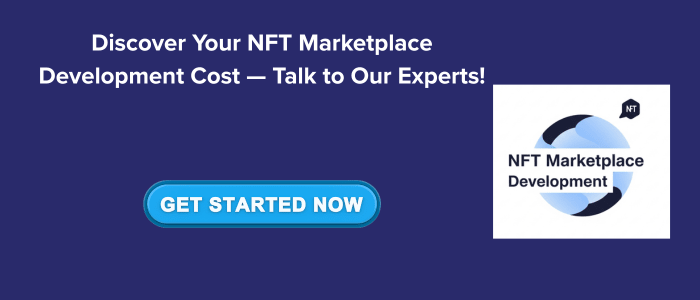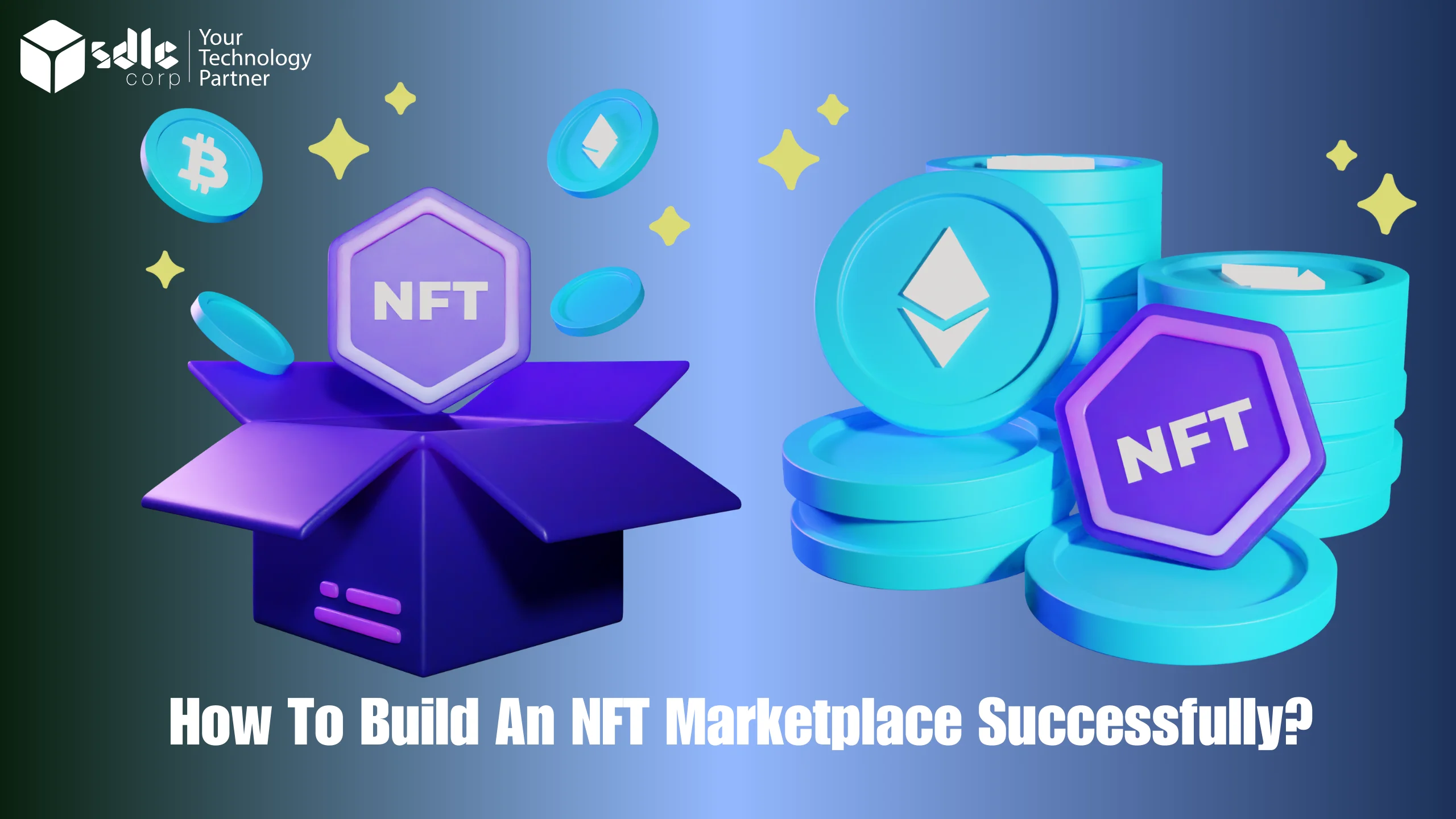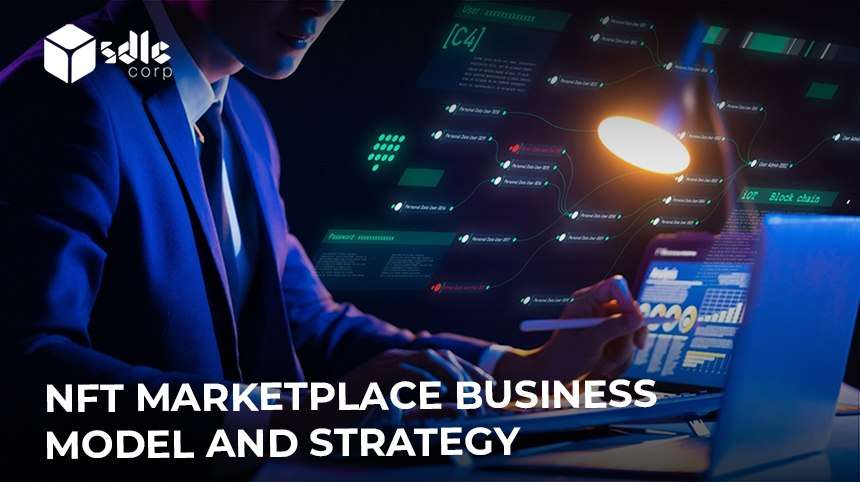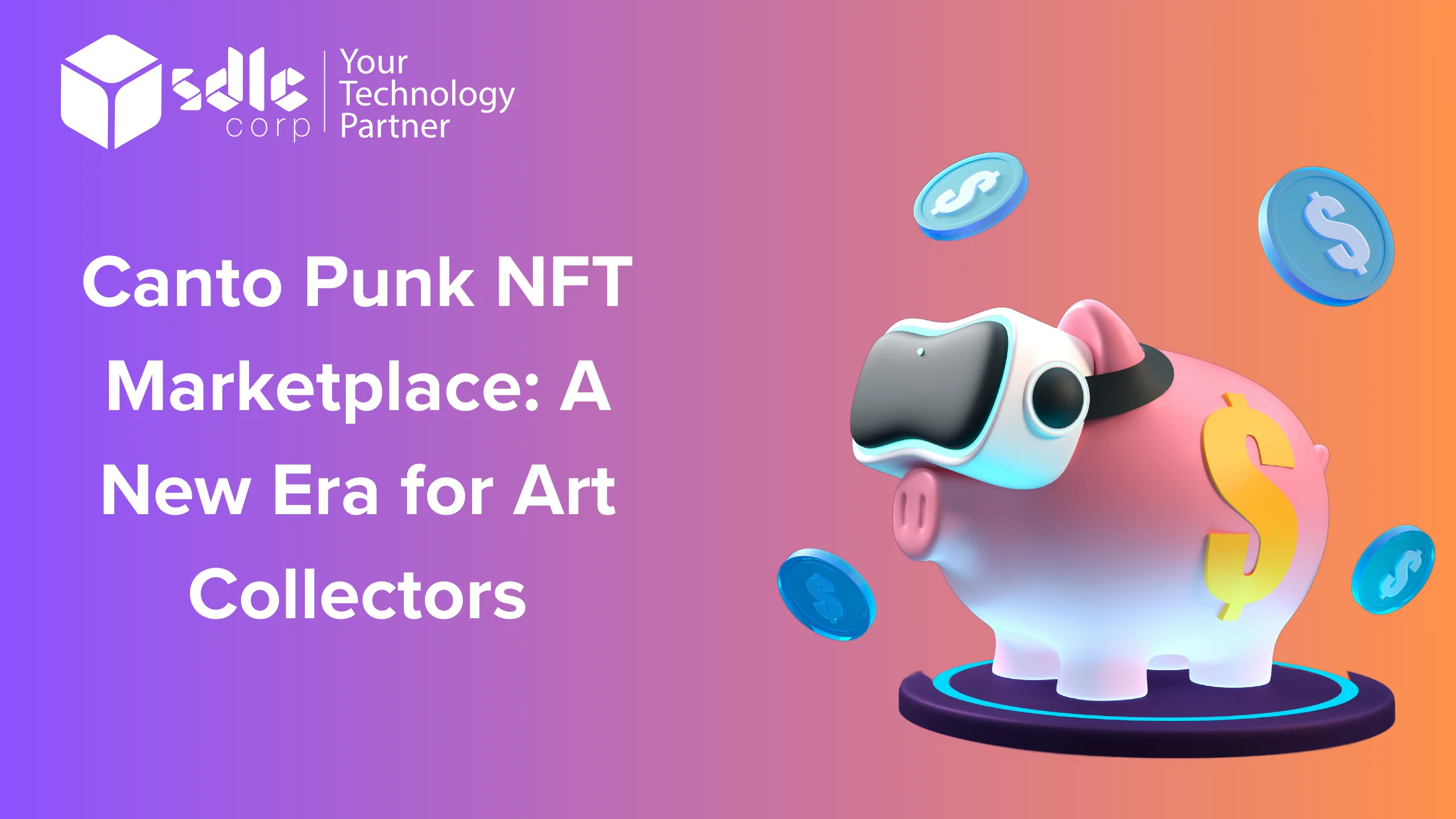The explosive rise of NFTs has transformed how digital assets are created, owned, and traded, driving huge demand for NFT marketplaces—platforms where users can mint, buy, sell, and trade NFTs securely and easily. Understanding the NFT marketplace development cost is essential for businesses and creators entering this space, as building a marketplace involves various factors influencing investment.
NFT marketplaces are the backbone of the NFT ecosystem, enabling creators, collectors, and investors to engage with digital art, collectibles, music, gaming, and more. Leading platforms like OpenSea and Rarible showcase their potential. Beyond facilitating transactions, NFT marketplaces ensure transparency, authenticity, and security via blockchain technology, but developing such platforms requires considerable tech and financial resources.
Key Factors Affecting NFT Marketplace Development Cost

The NFT marketplace development cost is influenced by various factors including platform complexity, blockchain choice, development approach, feature set, security measures, and the development team’s expertise.
Blockchain Selection
The blockchain you choose fundamentally shapes your marketplace’s capabilities and costs. Ethereum is the most popular choice due to its widespread adoption, but it suffers from high gas fees and slower transaction speeds. Alternatives such as Polygon, Solana, Binance Smart Chain, and Flow offer lower fees and faster transactions, which can impact your platform’s development and operational costs.
Deploying smart contracts on Ethereum, especially those with complex logic, can increase the NFT trading platform development cost due to longer development time and the need for gas optimization. Conversely, developing on less congested chains may reduce these costs but might limit access to certain user bases or integrations.
Feature Set and Functionalities
The breadth and sophistication of features directly affect the cost to build NFT marketplace. Basic marketplaces require foundational features like:
- User registration and wallet integration
- NFT minting and listing
- Buying and selling functionality
- Search and filtering
- User profiles and collections
- Admin dashboards
More advanced platforms may include:
- Multi-chain support
- Auctions and bidding systems
- Social networking features
- Analytics and reporting
- Royalty management for creators
- Enhanced security layers
- Fiat on-ramp/off-ramp integrations
Each additional feature adds to development time and cost, so prioritizing functionalities based on your target market is essential.
Design and User Experience
User experience is pivotal to success. Intuitive navigation, appealing UI design, and responsive interfaces across devices require skilled designers and front-end developers, which adds to the overall cost.
Development Approach
You can opt for:
- Custom development: Tailored to your unique vision, offering maximum flexibility but with higher NFT marketplace development cost and longer timelines.
- White-label or clone solutions: Faster and more affordable, these provide ready-made frameworks customized with your branding, but may lack distinctiveness and limit future scalability.
Team Composition and Location
Experienced blockchain developers, smart contract auditors, backend and frontend developers, UI/UX designers, and quality assurance testers are all necessary. Teams based in North America or Western Europe usually charge higher rates than those in Asia or Eastern Europe, influencing project budgets.
Security and Compliance
NFT platforms require stringent security measures, including smart contract audits, encryption, and compliance with relevant regulations. These add to development expenses but are non-negotiable to protect users and maintain trust.
Maintenance and Upgrades
Post-launch maintenance, server costs, feature updates, and technical support are ongoing expenses. Planning for about 15-20% of initial development cost annually for maintenance is prudent.
Breaking Down the Typical NFT Marketplace Development Cost

Understanding typical cost brackets helps you plan better. The following estimates are broad guidelines reflecting various project scopes:
| Project Type | Description | Estimated Cost (USD) |
|---|---|---|
| Basic MVP | Core features, single blockchain, minimal UI/UX | $20,000 - $40,000 |
| Mid-level Marketplace | Added auctions, multi-wallet support, better UI | $40,000 - $80,000 |
| Advanced Marketplace | Multi-chain support, analytics, custom smart contracts | $80,000 - $200,000+ |
What Is the Primary NFT Marketplace Development Cost?

The primary NFT marketplace development cost refers to building a platform where creators mint NFTs for the first time — a foundational step in the NFT lifecycle. Such marketplaces require robust minting smart contracts, royalty management, and secure wallet integrations. These added complexities generally push development costs higher compared to secondary marketplaces that focus on resale and trading.
Expect the primary NFT marketplace development cost to range from $50,000 to upwards of $150,000, influenced by features, blockchain choice, and security requirements.
Additional Cost Considerations

- Smart Contract Audits: Critical for security, costing $5,000 to $20,000 depending on complexity.
- Legal and Regulatory Compliance: Variable costs depending on jurisdiction and platform policies.
- Marketing and Community Building: A vital investment for user acquisition and liquidity.
- Infrastructure: Hosting, cloud services, and CDN costs scaled to traffic and storage needs.
Third-party Integrations: Payment gateways, analytics, and notification services may have associated fees.
Strategies to Manage Your NFT Marketplace Development Cost
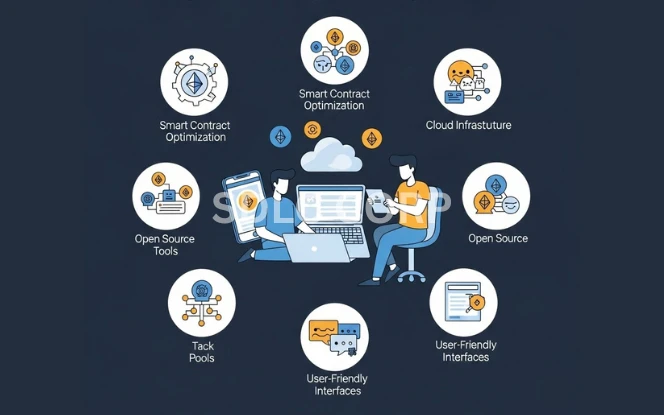
- Start Small with an MVP: Focus on essential features to validate your idea and gather user feedback before investing in advanced functionalities.
- Choose Cost-efficient Blockchains: Polygon or Solana offer lower transaction fees, making your platform more attractive to users.
- Leverage Open-Source Tools: Build on existing frameworks to reduce time and effort.
- Hire Experienced Developers: Expertise reduces errors and accelerates delivery.
- Plan for Scalability: Build architecture that supports growth without costly overhauls.
The Bottom Line
The NFT marketplace development cost is a multifaceted topic, dependent on your project’s scope, technology choices, and business goals. Whether you want a simple platform or a sophisticated, feature-rich marketplace, understanding cost drivers helps you budget realistically.
Your investment should balance quality, security, and user experience to build a marketplace that attracts creators and collectors alike — setting you up for long-term success in the booming NFT ecosystem.
Conclusion
Developing an NFT marketplace is complex and costs vary widely based on features, blockchain, and development approach. Costs range from tens to hundreds of thousands of dollars. Prioritizing core features and choosing cost-effective blockchains can lower expenses. Partnering with experienced developers ensures a secure, scalable, and user-friendly platform. A balanced, well-planned marketplace is key to long-term success in the evolving NFT space.
Our experts are ready to guide you through every step of your project contact SDLC CORP
FAQ's
1. What Affects the NFT Marketplace Development Cost?
The cost depends on blockchain choice, feature set, smart contract complexity, design, security, team expertise, and maintenance requirements.
2. How Much Does It Cost to Build a Basic NFT Marketplace?
A basic marketplace with essential features typically costs between $20,000 and $40,000.
3. What is Included in the Primary NFT Marketplace Development Cost?
Primary marketplaces include minting features, royalty management, wallet integration, and more complex smart contracts, which increase development costs to around $50,000 to $150,000+.
4. Are There Cheaper Blockchain Alternatives to Ethereum for NFTs?
Yes, Polygon, Solana, Binance Smart Chain, and Flow offer lower transaction fees and faster processing, helping reduce operating costs.
5. Can I Start With a Minimal Viable Product (MVP) to Reduce Costs?
Absolutely. Starting with an MVP focused on core features helps validate your concept and manage budget effectively before scaling.
6. How Important Are Smart Contract Audits?
Smart contract audits are crucial for security and trust. They can add to costs but prevent expensive vulnerabilities later.
7. What Ongoing Costs Should I Expect After Launch?
Maintenance, server costs, updates, security patches, and customer support typically account for 15-20% of initial development costs annually.
8. Can I Integrate Fiat Payments Into an NFT Marketplace?
Yes, integrating fiat on-ramps alongside crypto wallets can widen your user base but adds to development complexity and cost.
9. How Long Does NFT Marketplace Development Take?
Depending on complexity, development can take anywhere from 3 to 9 months or more.
10. How Can I Choose the Right Development Partner?
Look for experience in blockchain and NFT projects, transparent communication, and proven expertise in smart contract development.



